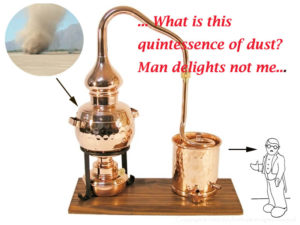 “And yet, to me, what is this quintessence of dust? Man delights not me, no, nor woman neither, though by your smiling you seem to say so” (Hamlet act 2, sc. 2)
“And yet, to me, what is this quintessence of dust? Man delights not me, no, nor woman neither, though by your smiling you seem to say so” (Hamlet act 2, sc. 2)
Tips for Use. Hamlet may have been the quintessential pessimist. But the goriness of the recent news reaches such peaks at times as to prompt at least sympathy, if not agreement, with Hamlet’s topic opinion. Among gory news, the video available on line showing the police in Fullerton CA, murdering the homeless Kelly Thomas. Thomas keeps crying “Dad, they are killing me” in his last gasps. An almost identical incident occurred in Portland Oregon in 2009… when three policemen murdered an unarmed, homeless and harmless individual, James Chasse. A 220 lb policeman jumped over the man already on the ground crushing his rib cage, mushing his lungs and killing him.
To add goriness to goriness comes the news of scores of headless bodies of men executed just south of the border – no doubt one more brilliant outcome of the war on drugs.
Now during standard job interviews applicants are supposed to say that they like people even if they don’t. If lying is not your suit, you may try something like, “I like people but sometimes I ask myself, “what is this quintessence of dust? Man delights not me.”
Or, at a corporate meeting you can address your political opponent, “When I see you or hear you I have to ask myself, what is this quintessence of dust? Man delights not me”, or variations thereof.
By the way, ‘quintessence’ is derived from the Latin ‘quinta essentia’, or fifth essence. In Medieval scholastic philosophy the four key elements of the cosmos resided each in its own sphere, namely earth, air, fire, and water. But over and above the sphere of fire there existed a purer and ethereal substance without a name, therefore called the ‘fifth substance’ or quintessence. We could consider it the Medieval equivalent of today’s still mysterious ‘dark matter’.
Essence, however, is also associated with the idea of distillation, via a still or alembic. Therefore, by associating the superior ‘fifth’ substance with distillation we derive the concept of quintessence, the concentrated best that a good still could produce – in our case man, a quintessence of dust and not much to be proud of (according to Hamlet and he is not alone).
If you like this website why not subscribe (see last menu item to the right)? You will get automatically any new blog as well as any other information and novelty that will be forthcoming, including a system to effortlessly (yes) remember hundreds of Shakespearean quotes by heart and having fun in the process. You can also chat with me – please go to the chat-page. And I promise, no sales calls, trade leads, venomous schemes, hidden plots, Machiavellian conspiracies, commercial ploys, psychological tricks, lead exchanges, spam or spamless mail, barter proposals, suggestions or offers of any kind imaginable (and unimaginable).
In the play. Hamlet in conversation with Rosencrantz and Guildenstern, two FBI-like agents dispatched by King Claudius to spy on Hamlet’s thoughts, intentions and actions.
